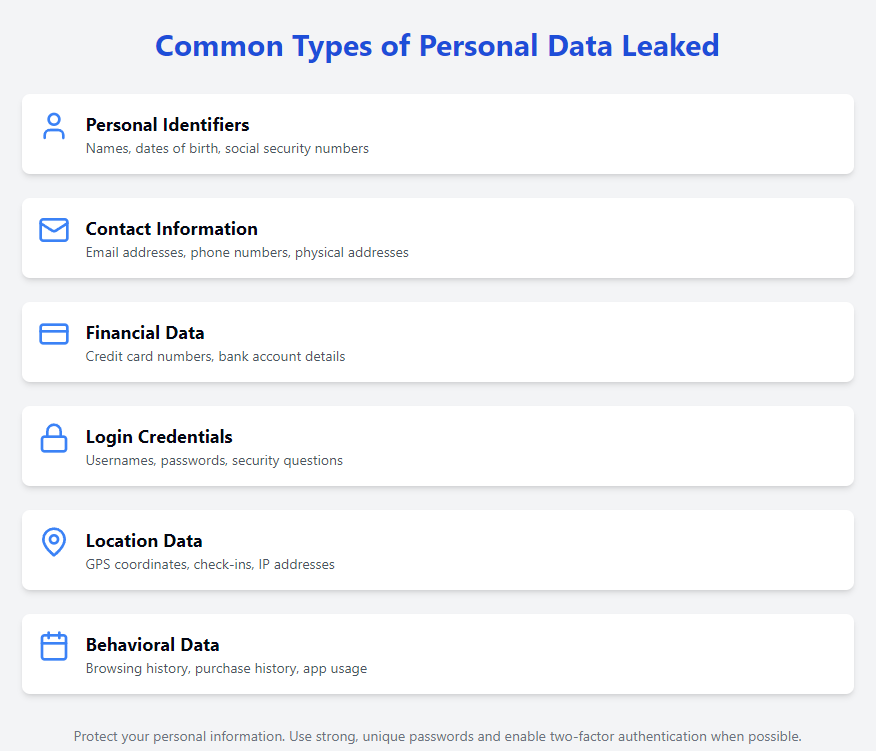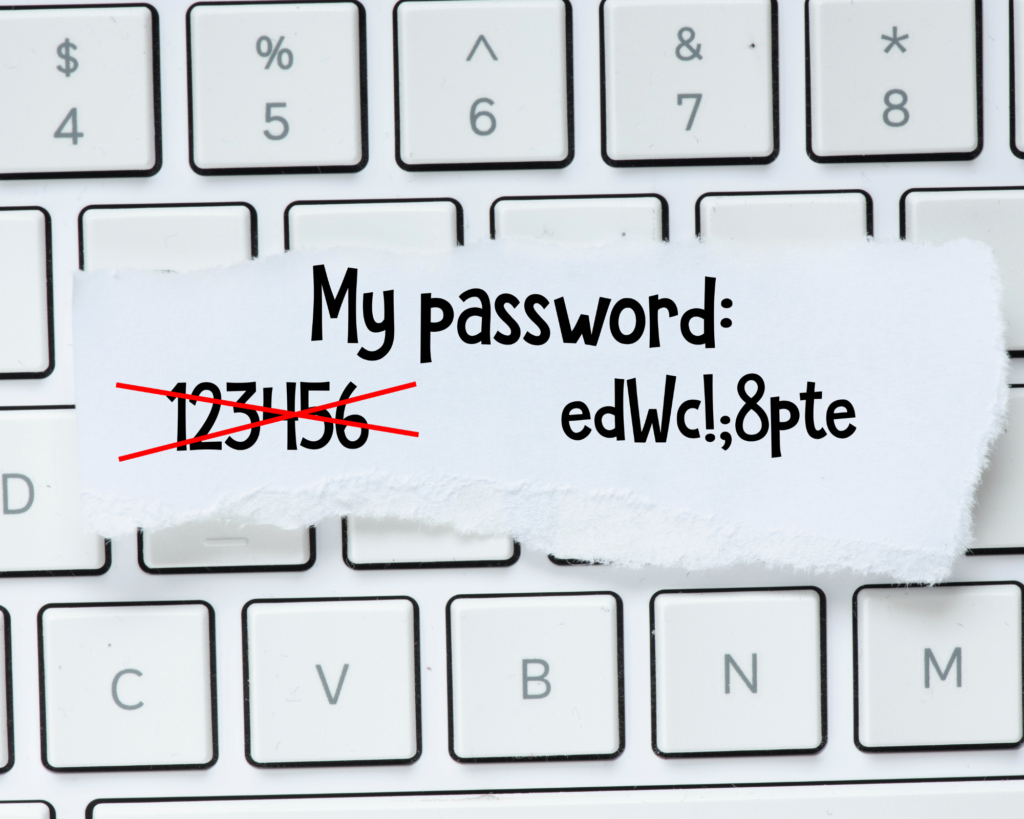Ever wondered what happens if your personal data is leaked? In today’s digital age, data breaches are alarmingly common, putting your sensitive information at risk. This article delves into the immediate and long-term consequences of personal data leaks and provides actionable steps to protect your data.
Immediate Consequences of a Personal Data Leak
When your personal data is leaked, the repercussions can be immediate and severe.
Types of Personal Data Commonly Leaked
- Financial Information: Credit card numbers, bank account details.
- Personal Identifiers: Social Security numbers, driver’s license numbers.
- Login Credentials: Usernames and passwords for various online accounts.

Financial Impact
A data breach can lead to unauthorized transactions, drained bank accounts, and fraudulent credit card charges. The financial strain can be overwhelming, especially if not addressed promptly.
Emotional and Psychological Impact
Discovering your personal data has been compromised can cause stress, anxiety, and a feeling of violation. The uncertainty of not knowing how your information will be used adds to the emotional toll.
Long-term Effects of Data Breaches on Individuals
Beyond the immediate fallout, data breaches can have lasting effects on your life.
Identity Theft and Fraud
Cybercriminals may use your personal data to commit identity theft, applying for loans or credit cards in your name, leading to significant financial and legal troubles.
Damage to Credit Score
Unresolved fraudulent activities can negatively impact your credit score, making it difficult to secure loans or mortgages in the future.
Legal Implications
You may become entangled in legal issues if your personal data is used in criminal activities, requiring time and resources to resolve.
How to Protect Your Personal Data
Preventative measures are your first line of defense against data breaches.
Best Practices for Data Protection
- Use Strong, Unique Passwords: Combine letters, numbers, and symbols.
- Enable Two-Factor Authentication: Adds an extra layer of security.
- Regularly Update Software: Protects against known vulnerabilities.
- Be Cautious with Personal Information: Share only when necessary.
- Monitor Your Accounts: Regularly check bank and credit statements.

Steps to Take After Your Data Has Been Leaked
If you suspect your personal data has been compromised, act swiftly.
Confirm the Breach
Verify whether your information was part of a known data breach. Websites like have I been pwned can help you check if your data was exposed.
Notify Relevant Authorities
Report the breach to local law enforcement and financial institutions to initiate fraud alerts and protect your accounts.
Monitor Financial Statements
Keep a close eye on your bank accounts and credit reports for any suspicious activity.
Understanding Data Protection Laws and Regulations
Awareness of data protection laws can empower you to take appropriate actions.
Overview of Data Protection Laws
- General Data Protection Regulation (GDPR): Protects personal data in the EU.
- California Consumer Privacy Act (CCPA): Provides data rights to California residents.
Your Rights Under These Laws
You have the right to access, correct, and request deletion of your personal data held by organizations.
Conclusion
In a world where data breaches are increasingly common, understanding what happens if your personal data is leaked is crucial. By staying informed and taking proactive steps, you can minimize the risks and protect your personal information.
Take Action Now
Don’t wait for a data breach to take control of your personal data. Implement the protection strategies discussed and stay vigilant.
FAQs
What is considered personal data in a data breach?
Personal data includes any information that can identify you, such as your name, address, Social Security number, financial details, and login credentials.
How can I find out if my personal data has been leaked?
You can use online tools and services like have I been pwned to check if your email or personal data has been compromised in known data breaches.
What should I do if I suspect my personal data is compromised?
Immediately change your passwords, notify your bank and credit card companies, and monitor your accounts for suspicious activity.
Can I claim compensation for a data breach?
Depending on your jurisdiction and the circumstances, you may be entitled to compensation. Consult legal advice to explore your options.
How do data protection laws protect me?
Data protection laws like GDPR and CCPA give you rights over your personal data, including access, correction, and deletion, and require organizations to protect your data.
Featured Snippet
What happens if your personal data is leaked?
When your personal data is leaked, you risk identity theft, financial fraud, and damage to your credit score. Immediate action is necessary to protect yourself and mitigate potential long-term consequences.

